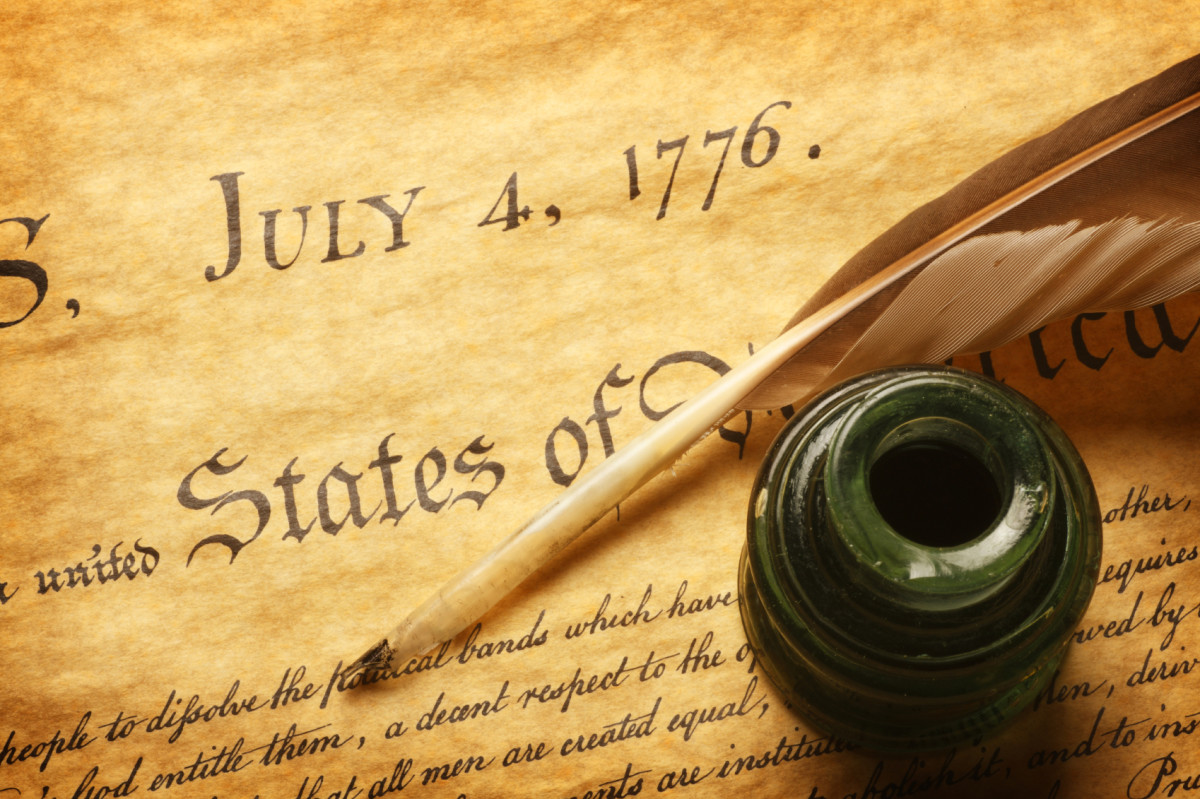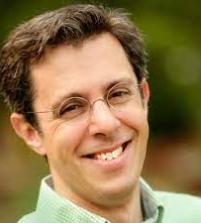Our Declaration
Here’s a suggestion for this Independence Day: Read the Declaration of Independence
 Here’s a suggestion for this Independence Day: Read the Declaration of Independence. But don’t just read it silently on your own; read it out loud with other people.
Here’s a suggestion for this Independence Day: Read the Declaration of Independence. But don’t just read it silently on your own; read it out loud with other people.
To quote Tevye the Milkman: “Sounds crazy, no?” Perhaps, but in this column I’d like to think with you about what it might look like if we treated the Declaration not only as a historical artifact, but also as a vital landmark in a conversation that is ongoing and in which you and I have a stake: the collective speech-act through which we constitute ourselves, in face-to-face groups and through feats of imagination, as a civic body. In other words, I’m inviting you to experience the Declaration as the basis for a collective act of reading and interpretation—that is, the way one might approach a sacred text.
In her 2014 book, Our Declaration: A Reading of the Declaration of Independence in Defense of Equality, political philosopher Danielle Allen shows the Declaration to be the product of round after round of conversation, discussion, debate, and argument by various groups of people: delegates who saw one another in the Continental Congress; others in colonial (state) legislatures who authorized their representatives, and who developed their own language; thinkers from whom Jefferson and others drew swatches of linguistic fabric. Allen charts various cycles of language-making as the Declaration gestated, collective acts which, as a result, show the Declaration to be not only the words of Jefferson, but of a much larger circle of people: “It is their argument that we read, not Jefferson’s alone,” she writes. “It is the art of democratic writing—process as much as product—that we learn to appreciate.”
This observation—that the Declaration of Independence is birthed by the many, not the elite few—is a crucial component of Allen’s larger argument: that the Declaration braids together liberty and equality in a way we desperately need to recover. Under the influence of a dominant libertarian discourse over the last several decades, she writes, we have generally come to posit liberty and equality as existing in a zero-sum tension with each other. But in her reading, the Declaration makes a different argument: “The Declaration of Independence matters because it helps us see that we cannot have freedom without equality. It is out of an egalitarian commitment that a people grows—a people that is capable of protecting us all collectively, and each of us individually, from domination.”
While voting rights, representation, economic opportunity, and checks on material inequality are necessary for maintaining political equality, Allen argues that “we also have to cultivate the capacity of citizens to use language effectively enough to influence the choices we make together. The achievement of political equality requires, among other things, the empowerment of human beings as language-using creatures.” And it is that lesson, as much as any other, that Allen sees conveyed through not only the product, but the process, embodied in the Declaration.
“Barukh she-amar v’haya haolam” (“Blessed is the One who spoke, and the world came into being”). So begins a daily morning prayer in Jewish liturgy, reflecting a notion of language as the constitutive force of the world that is shared by various religious and philosophical traditions. Our words both reflect and generate our worlds. They are also the building blocks of community. As the German philosopher H.G. Gadamer puts it in Truth and Method, “In a successful conversation [the parties] come under the influence of the truth of the object and are thus bound to one another in a new community.” Our capacity for shared language is what binds our worlds together.
Allen developed her book while teaching political philosophy to University of Chicago undergraduates by day and, by night, “adult students who were without jobs or working two jobs or stuck in dead-end part-time jobs, while nearly always also juggling children’s school schedules, undependable daycare arrangements, and a snarled city bus service.” It was the experience of simultaneously teaching across lines of class, race, and education that led her to the view that “[t]he point of political equality is not merely to secure spaces free from domination but also to engage all members of a community equally in the work of creating and constantly re-creating that community. … Only on the basis of a community built with their equality can [the members of the community] achieve their freedom.”
What might it look like if this Independence Day you gathered with a group of neighbors to read the Declaration—and I mean really read it: sit with it, try to understand it, interpret it? How might the activity of reading and interpreting a shared text help deepen our solidarity with and respect for one another? What new connections might be formed, or old ones reinvigorated? What fears might be overcome? What possibilities might emerge? In an age when we struggle to even articulate the word “we” with a straight face when speaking of the civic, this feels to me like a deeply necessary activity. As it probably always has been.


